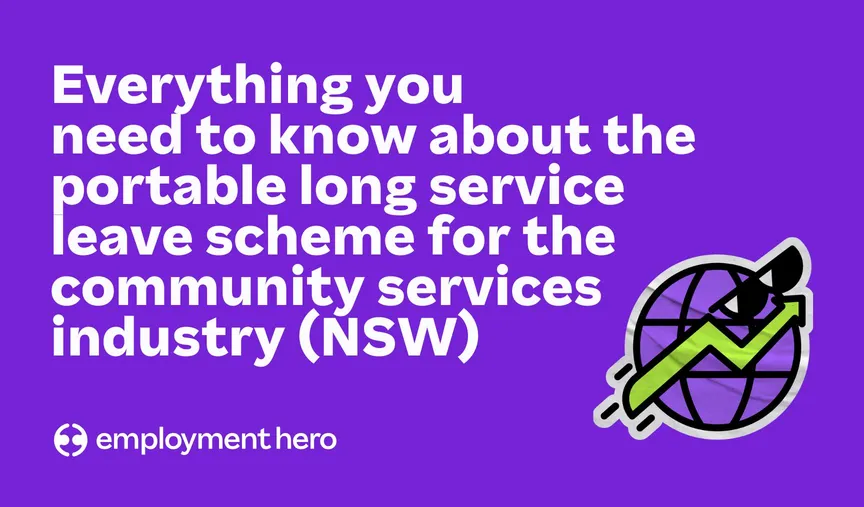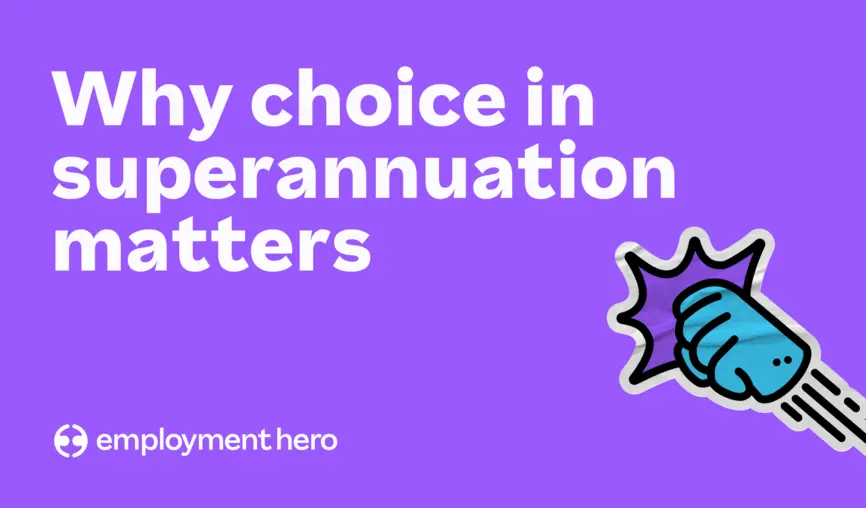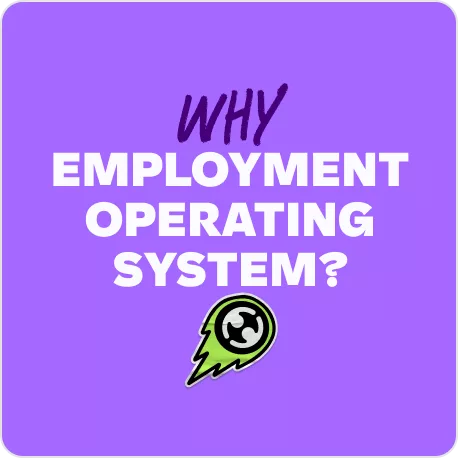An Introduction to Industrial Relations
Trying to make sense of industrial relations? Here’s a breakdown of what they are, what they cover, and how you can make sure you’re compliant.

‘Industrial relations’ sounds rather foreboding, doesn’t it? It’s a fancy term for a business essential subject that can seem scary and complex when you first dive into it.
The definition probabhttps://employmenthero.com/blog/industrial-relations/ly won’t help; the coordination and management of workplace and work-related entitlements and obligations between employers and employees. Yep, our eyes glazed over too.
Essentially, industrial relations are about people. At its core, you’ll find the Fair Work Act 2009; Australian legislation that ensures a fair playing field for employers and employees alike. It covers things like pay equity and employment standards that, as an employer, you legally need to meet.
However, industrial relations isn’t just about your employee. It’s equally concerned with how you can get the best out of your team, reduce conflict and ultimately grow your business. Read on as we break down what you need to know.
What are industrial relations?
Industrial relation is a big topic that can mean different things depending on your perspective. From a political perspective, it’s about driving the economy and a competitive business landscape. To society, it’s about work-life balance and ensuring we all have the same opportunities in the work arena.
Employees will be concerned with things like pay, job security, training and development and workplace safety. As an employer, you’ll be focused on productivity, workplace flexibility, managing conflict and employment law.
To better understand these perspectives, it’s important to grasp the fundamentals of employee relations. Explore more about it here.
Let’s assume you’re not prepared to complete a degree in industrial relations (at least not today) and get down to what matters to your business.
Your obligations under the Fair Work Act 2009
Under the Fair Work Act 2009 and other legislation, there are five key elements that make up the industrial relations framework you need to be aware of as an employer.
- Minimum terms and conditions of employment
- Enterprise bargaining, or the process of negotiation between employer and employee
- Provision for flexible work arrangements
- Protections against unfair or unlawful employment termination
- Freedom to choose third party representation in workplace matters
Understanding at least the basics of these elements is critical because there are certain obligations under each that you need to adhere to. For instance, you’ll need to pay your staff fairly, create zero-tolerance bullying procedures and understand the role of trade unions.
It’s essential to differentiate between what is negotiable and non-negotiable in employment to ensure clarity and compliance. For more details, visit this guide on negotiables and non-negotiables of employment.
Many of these are legal obligations and no doubt, you’re keen to stay on the right side of employment law!
Let’s take a look at the essentials.
The minimum standards of employment
The National Employment Standards (NES) are a set of employment entitlements for which you, as the employer, are responsible for providing to your employees. They include:
- Maximum weekly hours corresponding with employment type. For example, a full-time employee, should expect to receive 38 hours of work per week;
- Flexible work arrangements upon request. This arrangement could include mutually agreed upon start and finishing times, job sharing or working from home;
- Requests for parental leave or related entitlements. This relates to maternal, paternal and primary carer’s leave;
- Applications and approval of annual leave;
- Personal or carer’s leave, compassionate leave, unpaid family or domestic violence leave. This relates to leave that an employee may request in order to meet increased personal demands;
- Community service leave. Employees are entitled to take community service leave to serve as part of a voluntary task force such as the SES or partake in jury duty;
- Long service leave. An employee is entitled to paid long service leave when they have served the organisation for a determined number of years, often seven to ten;
- Public holidays;
- Notice of termination and redundancy pay. Employees are entitled to be notified upon the termination of their employment, within a reasonable timeframe. If applicable, employees are also entitled to a redundancy payment which compensates them for their unexpected or strategic exit and;
- Fair Work Information Statement. You must provide this statement to all and any new employees upon the commencement of their employment at your organisation.
Awards and pay equity
In order to meet the minimum standards set out by the Fair Work Ombudsman, you’ll need to know the award wages. The Federal Government’s Fair Work website has a range of tools that can be used to identify the correct award wage for each type of employee your business employs.
Using these tools, you can determine minimum wages, penalty rates and allowances, as well as work out things like deducting pay and overpayments.
Additionally, the tools on this website detail how and when employees should be paid, pay procedures during inclement weather and stand down, as well as pay slips and record keeping. Do you know what pay entitlements your employees have? Brush up on your knowledge here.
Pay equity is an important element of award wages that looks to ensure all employees receive equal pay for the work they have done. This includes time spent in training and team meetings.
Flexible work arrangements
Under the NES, some employees are entitled to request flexible working arrangements from their employer. You might see requests from employees such as a change to hours (e.g. start and finish times), patterns of work (e.g. split shifts or job sharing) or of course, location (e.g. working from home).
You don’t necessarily need to grant that request, but particularly in the age of COVID-19, flexible work arrangements are becoming more and more ‘the norm’.
In fact, a recent survey by Employment Hero found 84% of people enjoy working from home, and 92% would continue to work from home regularly if given the opportunity. As a proactive employer who is on their industrial relations game, you’ll probably want to look at how you can adapt and evolve your business to suit the growing popularity of flexible work.
It’s crucial to manage workplace conflicts effectively to maintain a harmonious environment. For practical tips, check out our guide on resolving common workplace conflicts.
Who enforces Australia’s workplace relations?
It’s always a good idea to know who is in charge. As two independent government bodies, the Fair Work Ombudsman and Fair Work Commission both regulate Australia’s workplace relations; but play different roles in doing so.
The Fair Work Ombudsman is responsible for enforcing compliance with the Fair Work Act 2009, including all related legislation and awards. They also educate and provide advice to both employers and employees on things like pay rates.
For example, if your business was suspected of underpaying your staff, the Fair Work Ombudsman would look to resolve this breach and potentially issue you with a penalty.
On the other hand, the Fair Work Commission is focused on maintaining minimum standards to protect both employers and employees. For instance, they set minimum wages and employment.
If your business was accused of unfairly dismissing an employee, the Fair Work Commission would step in to review and investigate the conditions of the dismissal.
To ensure you’re also compliant with broader business regulations, it’s essential to be familiar with Australia’s fair trading laws. Learn more about them here.
The other side of the law
Industrial relations isn’t all about employment law and compliance. It’s also about how you, as an employer, interact with your team to increase productivity, boost morale and minimise workplace conflict.
Once you’ve met your basic legal obligations, it’s a good idea to look at what else you can do to provide your employees with a great place to work. It’s not just a nice thing to do; a 2019 study by the University of Oxford found that happy workers are 13% more productive.
So, how can you turn any frown upside down? Look at things like:
- Training and development to provide employees with the opportunity to grow with your business, contribute more holistically and better align with your company goals
- Communication; a culture of open and honest communication ensures your people feel secure in their jobs and part of a team
- Perks and benefits (not necessarily financial) to not only attract high calibre candidates but demonstrate your appreciation of hard work and innovative thinking
- Team culture development; work and social activities that promote teamwork help to minimise feelings of isolation and increase overall job satisfaction
Fair work pays off
Industrial relations can be a daunting topic to get your head around at first but stick with it. Getting it right within your business can mean the difference between success and failure. Fundamentally, industrial relations is about protecting people at work, so make sure you’re familiar with the Fair Work Act 2009.
Understanding the Australian industrial relations system means honouring your employee’s right to equal and on-time pay, approval of appropriate leave and staying abreast of workplace trends like remote work.
You should also understand that the Fair Work Commission and Fair Work Ombudsman work in conjunction to mandate and investigate workplace practices in Australia, and they’re great sources of information. Of course, industrial relations is also about protecting you – the employer.
For instance, how can you use workplace strategies to boost productivity? Look at things like training and development, communication, perks and benefits and building a positive team culture.
One of the most rewarding aspects of being the boss is the chance to create a great place to work. Embrace it!
Related Resources
-
 Read more: NSW Government introduces Portable Long Service Scheme for the Community Services Industry
Read more: NSW Government introduces Portable Long Service Scheme for the Community Services IndustryNSW Government introduces Portable Long Service Scheme for the Community Services Industry
The NSW Government has introduced portable long service leave for the community services industry. Learn what it is and what…
-
 Read more: Payday Super changes: What we’re fighting to fix and why it matters to you
Read more: Payday Super changes: What we’re fighting to fix and why it matters to youPayday Super changes: What we’re fighting to fix and why it matters to you
Big changes are coming to how superannuation is paid in Australia. Here’s what we’re asking Treasury to seriously consider updating…
-
 Read more: Why choice in superannuation matters
Read more: Why choice in superannuation mattersWhy choice in superannuation matters
What could be coming when Payday Super hits and what Employment Hero is doing about it.












